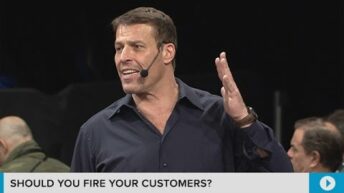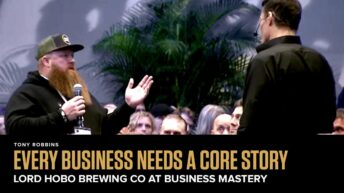We may be apt to hold on to the traditional notion that leadership is defined by rank and order. But your position or title alone does not qualify you as a veritable leader. Think about it, how many CEOs are there in the world that hold a position of great power, but have a nominal impact on their employees? How many managers aren’t even respected by those that they manage? Even brilliant and innovative individuals can stumble when it comes to finding their voice. Because leadership is not defined by a position, nor it is even defined by intellectual prowess or natural talent – leadership is the skill of influence, something that you can use to impact the thoughts, feelings, emotions and actions of others. And it is the most important skill that any one of us can master.
Yet as important as leadership is, in today’s world, it’s a rarity. And that’s not because there is a scarcity of natural born leaders. In fact, leadership can be cultivated. Many of us suppose it’s an innate talent, but anyone can become a leader in something that they decide to become masterful in. You could be the leader in your business, the leader in your class, the leader in your own family. You could even decide to become the leader of your own life. There are different types and different styles of leadership. But real leadership starts with the capacity to discipline your disappointment. Because along any journey worth taking, you are going to encounter obstacles, and odds are, you are going to fail. But if you can find a way to connect to yourself, and connect to others, and if you can find a way to break through those challenges, you can become a true leader. And when you strive to serve the greater good – something greater than yourself – that’s when you can become a truly great leader.
Tony and Mary Buckheit recently sat down with General Stanley McChrystal and Chris Fussell to discuss what great leadership looks like today and how to cultivate an infrastructure for success in any organization.
In this episode of the podcast, you will hear Tony, General McChrystal and Chris delve into the reasons that leadership no longer comes from a command and control model, but from creating relationship-based change throughout the entire organization and by empowering every single person that is part of your business. And they examine the importance of building trust, remaining flexible, practicing empathy, and creating a culture of shared consciousness. By breaking out of the traditional sense of leadership, business owners can create a more cohesive and more powerful team that is not only more unified, but more efficient, and ultimately, more effective.
Visit Tony Robbins’ websites:
https://www.tonyrobbins.com/
http://www.unshakeable.com/
Follow Tony Robbins @:
Facebook: https://www.facebook.com/TonyRobbins
Twitter: https://twitter.com/tonyrobbins
LinkedIn: https://www.linkedin.com/in/ajrobbins
Instagram: https://instagram.com/tonyrobbins/
Tony Robbins is a #1 New York Times best-selling author, entrepreneur, and philanthropist. For more than 37 years, millions of people have enjoyed the warmth, humor and dynamic presentation of Mr. Robbins’ corporate and personal development events. As the nation’s #1 life and business strategist, he¹s called upon to consult and coach some of the world¹s finest athletes, entertainers, Fortune 500 CEOs, and even presidents of nations.






Add comment